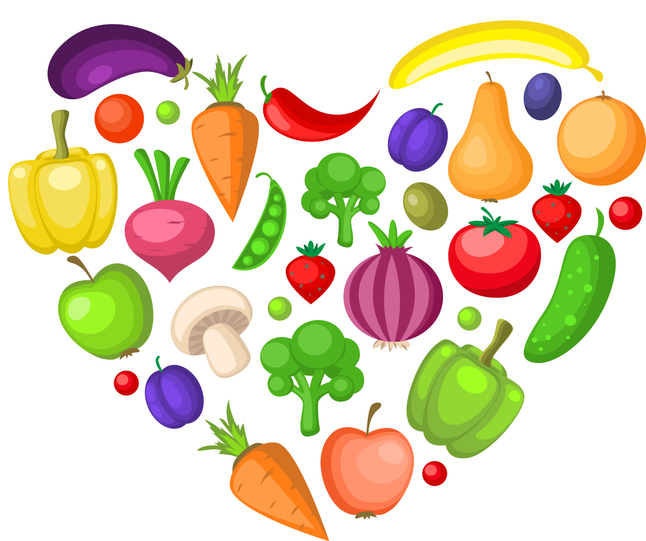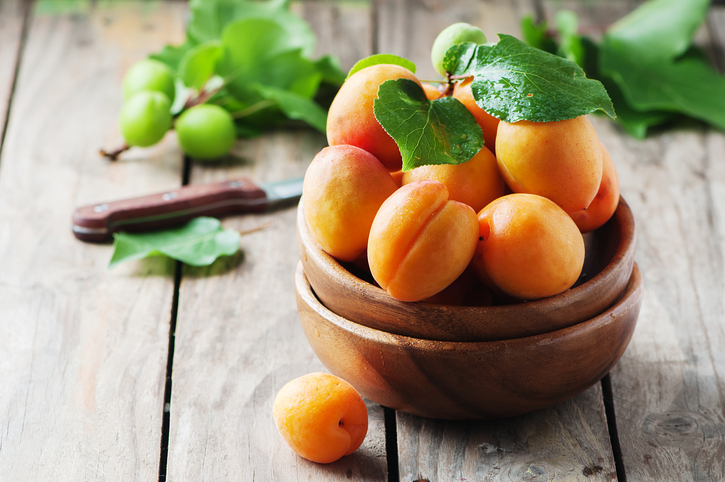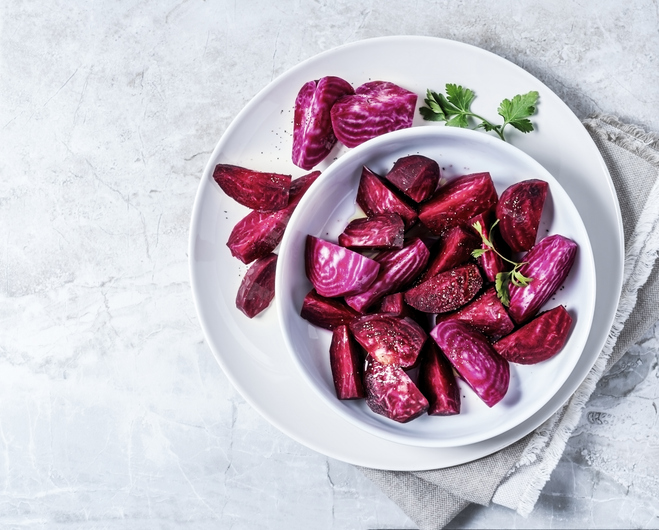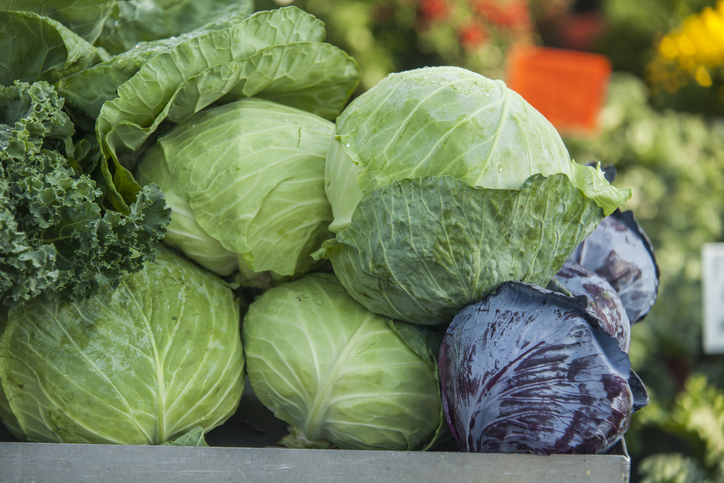June is National Fresh Fruit and Vegetables Month! Here’s What’s In Season

By Joy Stephenson-Laws, JD, Founder
I think we should celebrate eating fresh fruits and veggies every month, but I’m excited to really dive into summer by going to the farmers market and taking advantage of what’s in season.
“Seasonal eating is simply eating the food that was recently harvested [so super fresh!] by the farmers. By rotating your diet to eat the vegetables and fruits in season throughout the year, you gain variety in both taste and nutrition,” according to the University of Maryland Medical System.
The more fresh, the better!“Studies have shown that the fresher the produce, the healthier it is to eat. Fruits and vegetables that are allowed to ripen naturally and are consumed shortly after harvesting contain higher levels of vitamins, minerals and antioxidants, which protect against cancer and other serious diseases, than produce that has traveled long distances and has to sit on grocery store shelves for long periods of time. Fresh fruits and vegetables usually have a fuller flavor than food allowed to sit on shelves or in freezers at the supermarket.”
Below are a few seasonal fruits and veggies you can enjoy this June to celebrate National Fresh Fruit and Vegetables Month. To be clear, I am focusing on Southern California (California is the largest food producer in the United States), but if you want to be very specific by where you live click here.

- Apricot. Apricots contain lycopene, which is also found in tomatoes. Lycopene is a carotenoid pigment (an antioxidant). It may help prevent cancer, reduce your risk for cardiovascular disease and more. Apricots also have a high water content. Eating foods rich in water not only will help keep you hydrated, but they may also make you feel fuller longer, prevent constipation, beat belly bloat and prevent cravings. And an added bonus is the combination of water and antioxidants in apricots may help keep your skin and hair looking beautiful.
- Beet. Beets get their deep red color from antioxidant compounds called betalains. These antioxidants may help diminish the damage we all face from oxidative stress and inflammation. This is key in helping prevent cancer. According to the American Institute for Cancer Research, some animal studies have shown “beets seem to inhibit carcinogen formation and increase production of immune cells and body enzymes that help fight cancer development.” Just one cup of beets contains 31 mg of magnesium, and some evidence suggests magnesium may reduce the overall risk of cancer.
Try this avocado, beet and apricot salad for your next summer get together.

- Cabbage. In my opinion, cabbage doesn’t get as much credit as it deserves. It’s a great source of calcium and is super versatile. You can make grilled cabbage “steaks,” sauerkraut from scratch (which is an excellent probiotic and good for gut health) and make the most crunchy, refreshig salads with cabbage (perfect for summer!). Cabbage also has more than 80 percent of the RDI (recommended daily intake) of vitamin K, more than half the RDI of vitamin C and 10 percent of the RDI of folate. It is a good source of antioxidants, which help protect our cells from damage by free radicals.

Don’t forget cabbage is perfect for making coleslaw, a summer side dish staple!
- Cantaloupe. Cantaloupe just so happens to be a potassium powerhouse! Because of this, cantaloupe can help increase your stamina and promote faster muscle recovery. Cantaloupe can assist in protecting the body from cardiovascular illnesses such as stroke, heart and coronary illnesses. Thanks to the amount of potassium in cantaloupe, this fruit has become another go-to for athletes and gym enthusiasts.

- Cucumber. I believe cucumbers should make a daily appearance in everyone’s diet during the warmer months when we are so prone to dehydration. They are more than 95 percent water! There are many ways to eat these delicious, nutrient-packed green gems other than slicing them over a salad. Cucumbers make great chip alternatives. Use them as a vehicle to eat guacamole, hummus and other healthy dips. Add sliced cucumber with some fresh mint to water for some “spa water.” You can also pickle cucumbers for a tangy, refreshing side dish.

The options for salad are endless. Try this cantaloupe cucumber salad.
These are just a few of my favorites that are in season. There are plenty of guides online that can help you navigate what’s in season based on where you live or where your summer travels might take you.
The majority of adults do not eat enough fruits and veggies.According to the Centers for Disease Control and Prevention (CDC), only 1 in 10 adults get enough fruits and vegetables! If you suspect you might not be that one, I have a few tips on how you can effortlessly include more fresh produce in your daily diet:
- Add vegetables to your fruit smoothie. Kale, spinach or even cauliflower (keeping a frozen bag of it on hand makes it so easy) are great options. You won’t even taste the greens.
- Add veggies to your scrambled eggs for more flavor, texture and, of course, nutrients!
- Have a sweet tooth? Satisfy your sugar cravings with berries and other fruits.
- Add it to your sauce. Spinach and diced carrot are always great added to marina sauce. You can also add spinach or kale to pretty much any kind of soup whether it is store-bought or homemade.
- Load up your sandwiches and burgers with lettuce, tomatoes, avocado, sprouts and anything else you might think will work. A grilled veggie sandwich with a medley of vegetables such as zucchini and squash also make a nice, quick summer meal.
- Eat your veggies first. If you are hungry and go straight for the carbs like bread and fries, the less likely you will want that salad or broccoli. Always start with veggies. The fiber and water present in these veggies may also help you feel more full and less likely to reach for not so healthy options.
In general, don’t forget to flavor your food with herbs and spices such as basil, parsley, cayenne and more. People often forget that herbs and spices are nutrient and antioxidant-rich and may help fight off chronic illnesses.
As always, speak to a competent healthcare professional about what foods you are including in your daily diet, especially if you have any existing health issues, are taking any medications or are pregnant or breastfeeding.
Finally, help yourself maintain nutritional balance by taking routine nutrient tests. If the test reveals that you are not nutritionally balanced, a competent healthcare professional can work with you on making the necessary dietary changes and recommend quality supplements if necessary. I also highly recommend nutrition therapy.
Enjoy your healthy life!
Disclaimer: This article is not intended to provide medical advice. Please consult with your doctor or another competent healthcare practitioner to get specific medical advice for your situation.
The pH professional health care team includes recognized experts from a variety of health care and related disciplines, including physicians, attorneys, nutritionists, nurses, and certified fitness instructors. This team also includes the members of the pH Medical Advisory Board, which constantly monitors all pH programs, products, and services. To learn more about the pH Medical Advisory Board, click here.







